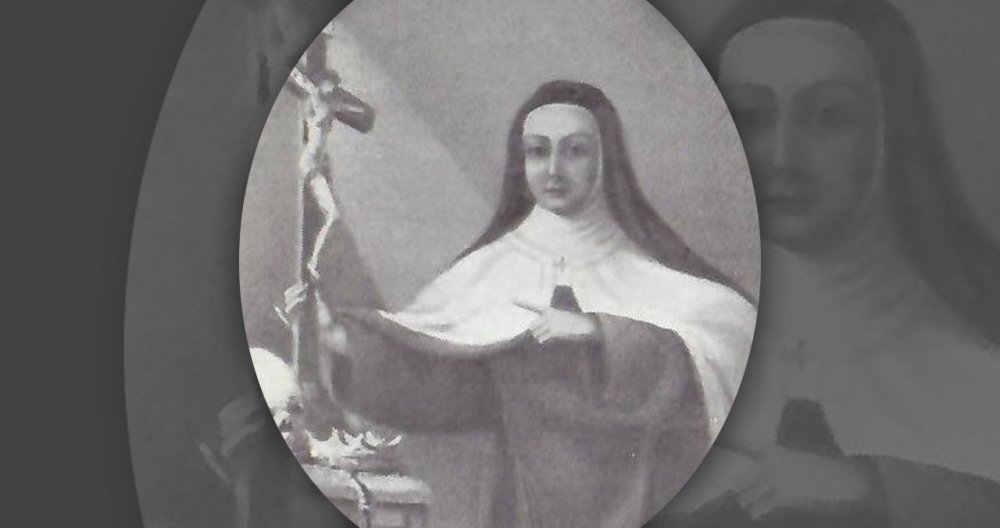Eleonora d’Este was born on the 2nd of January 1643 in Modena (Italy).
Her fortunate parents were Prince Francis I, Duke of Modena (who succeeded his father «Alfonso III d'Este» in the Duchy, who had abdicated to become a Capuchin) and Princess Maria Farnese, daughter of Ranuzio I, Duke of Parma. Eleonora was a first cousin of Princess Caterina Farnese of Parma, who also wore the Habit of the Discalced Carmelite nuns, but in the Monastery of St. Teresa in Parma, taking the name of Sister Teresa Margherita of the Incarnation: a chosen, heroic soul, full of the Spirit of God, whose holy life was all a heavenly perfume (1637 1684).
Baptized in the Court Chapel on the same day she was born, she had her uncle Cardinal Rinaldo d'Este as godfather. Her most pious mother offered her, as soon as she was born, to Our Lady Most Holy. Educated in a Christian way and nourished by true and firm piety, she grew up at Court in age, grace and in virtue. In her was an angelic purity, a very ardent love for Jesus, a very tender devotion to Our Lady, a study of perfection to the full extent, with constant mortification of body and spirit, an inexhaustible charity towards her neighbour, so that she came to be called «Mother of the poor». To the insistent King of England who wanted her to be his spouse, she responded with a polite, but firm refusal. On May 3rd, 1674, she left the Court, entered the Discalced Carmelites of Modena and wore the Religious Habit, taking the name of Sister Maria Francesca of the Holy Spirit.
She was 31 years old. Entering the Monastery, she said to the nuns: «Let them do with me whatever they want». And she kept her word with perfect consistency. The hard life of the Teresian Carmel she embraced, indeed lived it in its full rigor. She exercised all the virtues to the highest degree, so as to be an example and an encouragement to the Sisters. But two virtues stood out in her in a way that was entirely special and that seemed a prodigy: humility and obedience; precisely the two virtues in her that, because of her origin, her blood and habits of life, should have found less suitable ground.
A woman of uncommon intelligence, of tenacious will, of singular prudence, of broad views, and of a truly maternal heart, she was repeatedly called by her superiors to govern the community. And her governance was always wise. It was said of her that in addition to being a great Saint, she was also able, because of her prudence, to govern an empire. Such was the esteem she enjoyed, that lay people and ecclesiastics resorted to her for counsel.
The Venerable Mother Mary Frances of the Holy Spirit crowned her saintly life with a most holy death on February 24th, 1722, at 79 years of age.
The Diocesan Inquiry into her «Life, Virtue and Reputation for Holiness» closed in 1729.
